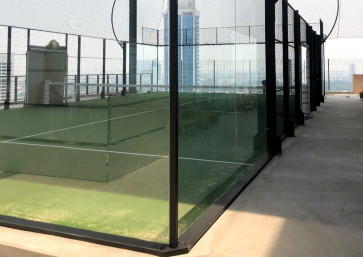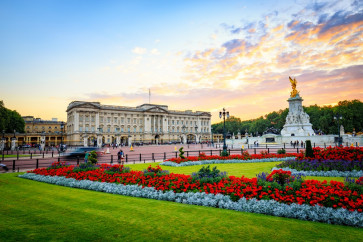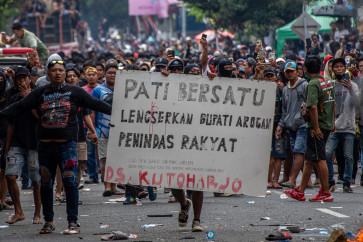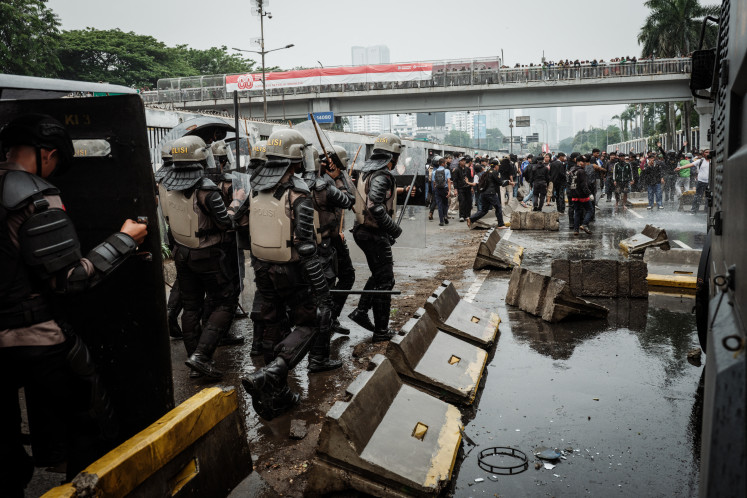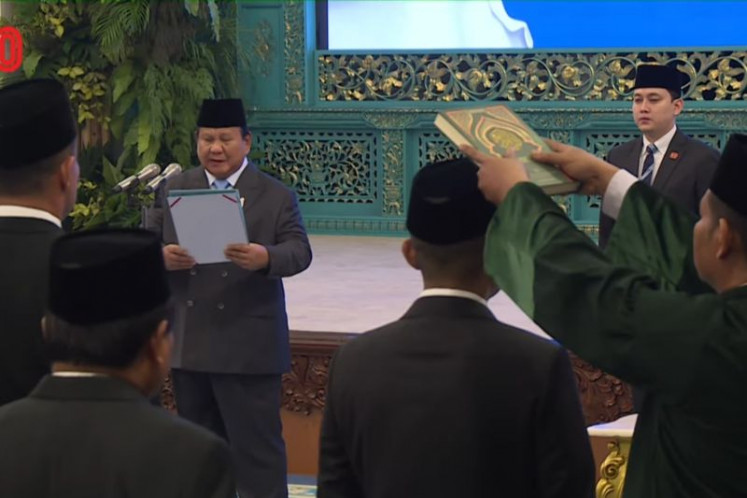Popular Reads
Top Results
Can't find what you're looking for?
View all search resultsPopular Reads
Top Results
Can't find what you're looking for?
View all search resultsAhok backs down, revises regulation on public protests
After being heavily criticized for issuing a regulation that restricted public protest, Jakarta Governor Basuki âAhokâ Tjahaja Purnama has revised the controversial Gubernatorial Regulation No
Change text size
Gift Premium Articles
to Anyone
A
fter being heavily criticized for issuing a regulation that restricted public protest, Jakarta Governor Basuki 'Ahok' Tjahaja Purnama has revised the controversial Gubernatorial Regulation No. 228/2015 by issuing Gubernatorial Regulation No. 232/2015 on controlling the implementation of freedom of expression in public.
'We are aware that we made mistakes with the previous regulation, so we have revised it. In the revision we allow people to stage protests in other places but please do not cause any congestion,' Ahok told reporters at the City Hall on Friday.
Article 4 of the previous regulation stipulated that protesters were allowed to stage rallies at only three venues: Parkir Timur Senayan at the Bung Karno Sports Complex in Senayan, Alun Alun Demokrasi (Democracy Plaza) located at the House of Representatives complex and Silang Selatan (Southern Cross) at the National Monument (Monas) park.
Article 4 of the new regulation that was signed on Nov. 9, says that those three places are provided by the city administration for demonstrations.
Regulation 228 specifically stipulated in Article 9 that protests staged outside of the three designated areas were prohibited, the new regulation, however, only stipulates in Article 8 that people who stage protests in public spaces and who damage public facilities, drop litter or do not respect human rights will be punished as regulated in the law.
The new regulation also drops any mention of a prohibition of convoys as stated in Article 11 of regulation 228.
Previously on Monday, Ahok said that while the new regulation was more lenient than the previous one, protesters must obey Law No. 9/1998 on freedom of expression, which stipulates that demonstrations cannot be held at several locations including the Presidential Palace, places of worship, military areas or hospitals.
'You still cannot stage rallies in places like schools or the Presidential Palace, there is a law for that' he continued.
Separately, Maruli Rajagukguk from the Jakarta Legal Aid Institute said he still opposed the more lax regulation. According to him, there is no urgency to issue such a regulation, as Law No. 9/1998 has comprehensive rules on regulating freedom of speech.
Despite relaxing some articles in the new regulation, Ahok did not change articles that stipulated that protests should be conducted between 6 a.m. and 6 p.m. and that the noise level of the sound system should not exceed 60 decibels, a volume similar to the noise level of conversations in a restaurant, an office or background music.
Jakarta National and Political Unity Office head Ratiyono said that even though public rallies were not restricted to the three areas, it would be better if protests could be staged in those areas.
'We should create a more organized city. If we use the provided places we will not cause any congestion. By applying that we can also educate the people to use the facilities provided by the city administration,' he said Friday as quoted by kompas.com.
Also on Friday, Jakarta Police chief Insp. Gen. Tito Karnavian said that the new regulation could be complementary to Law No. 9/1998.
He further explained that although Law No. 9/1998 properly regulated public freedom of expression, it had yet to regulate specific and technical rules, like exact places in the capital where demonstrations were prohibited.
'Law No. 9/1998 cites locations where demonstrations are forbidden, like hospitals and houses of worship. The rule is applied nationally. Nonetheless, cities in the country usually have different places that are prohibited for demonstrations because of their strategic position for public access,' Tito said, pointing to Semanggi intersection, Central Jakarta, as an example.
He added that restricting demonstration locations would guarantee that demonstrators would not disrupt public order, as well as interfering with other people's rights to access roads or other public facilities. (agn)


